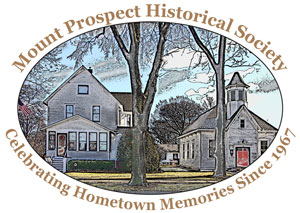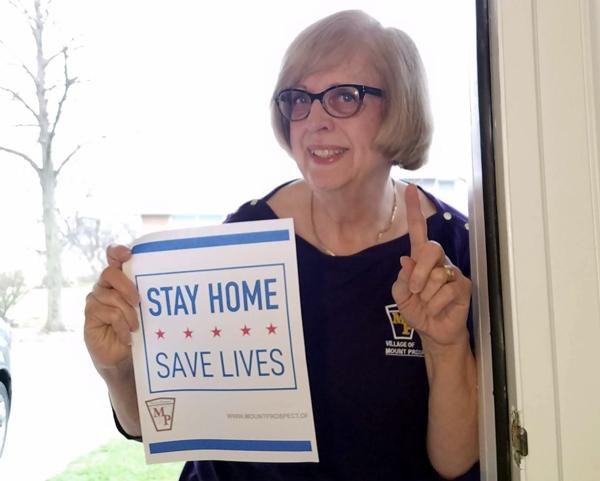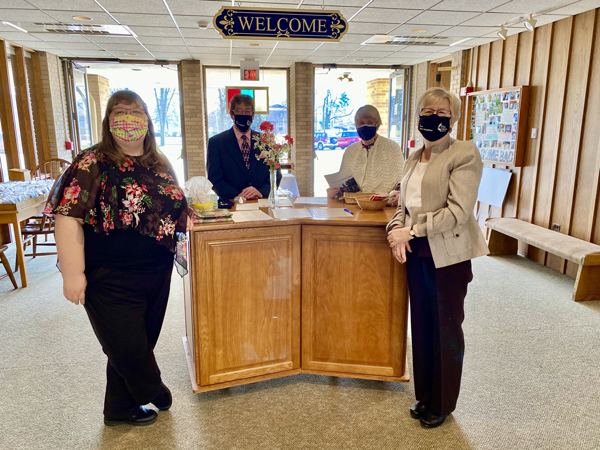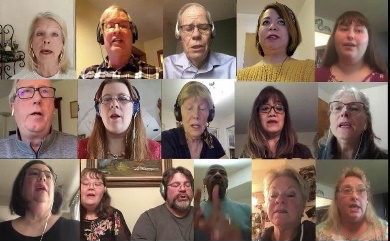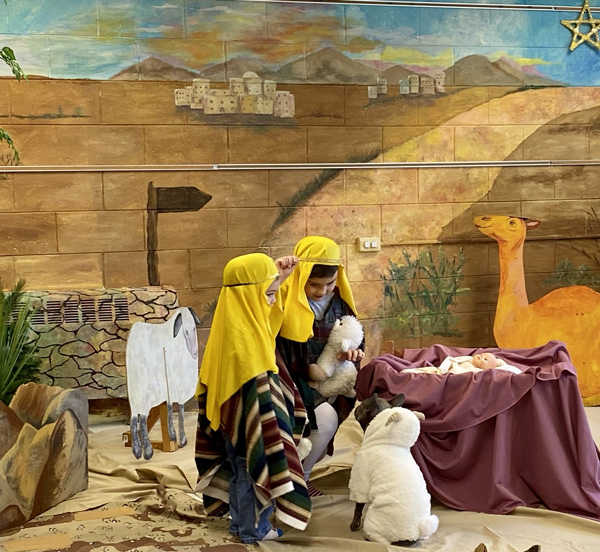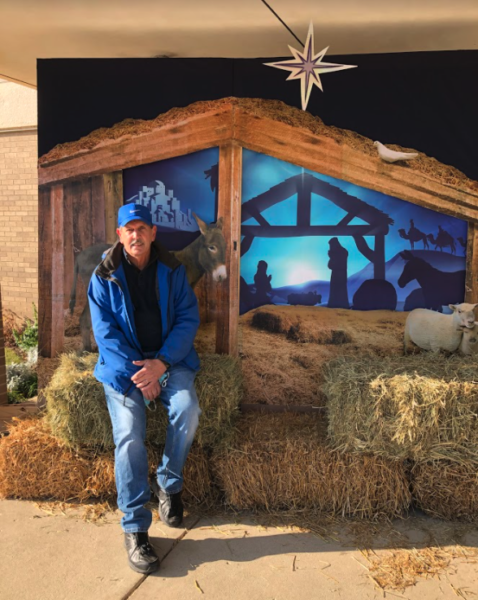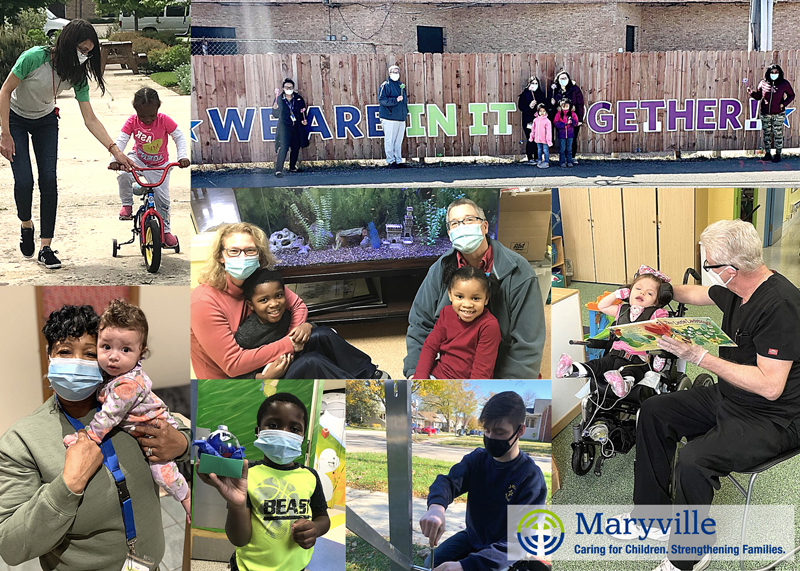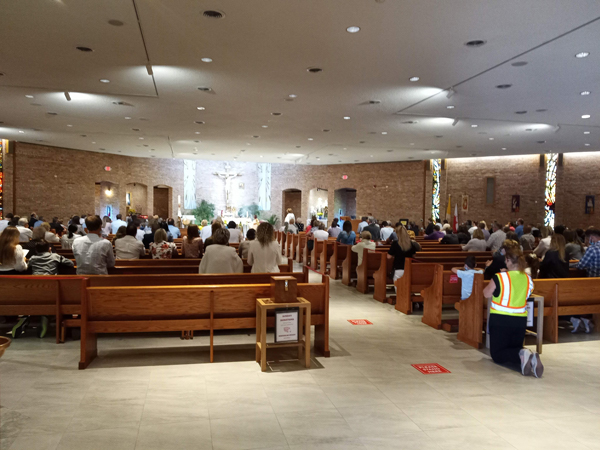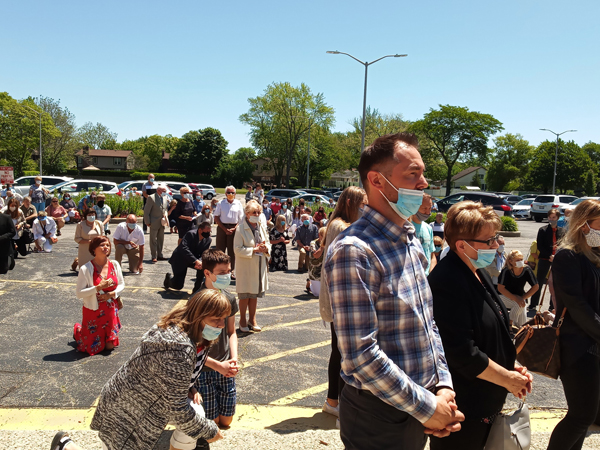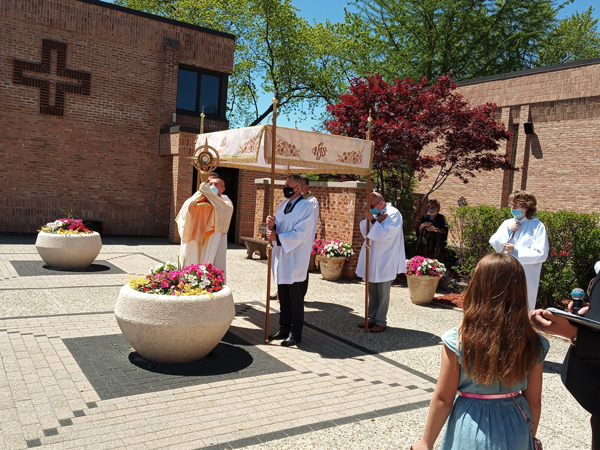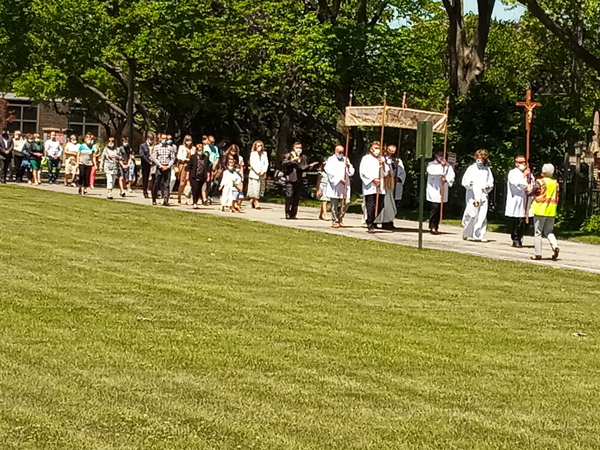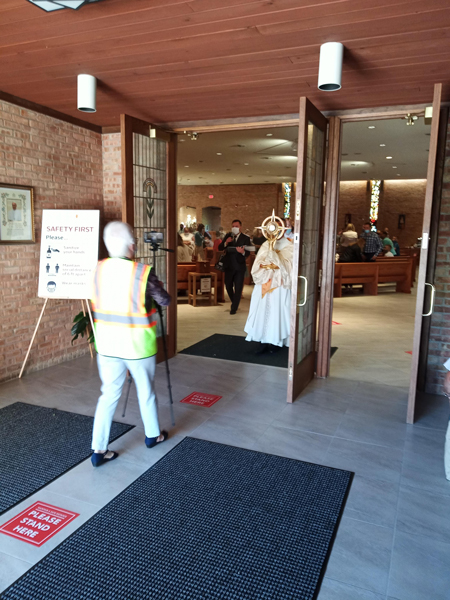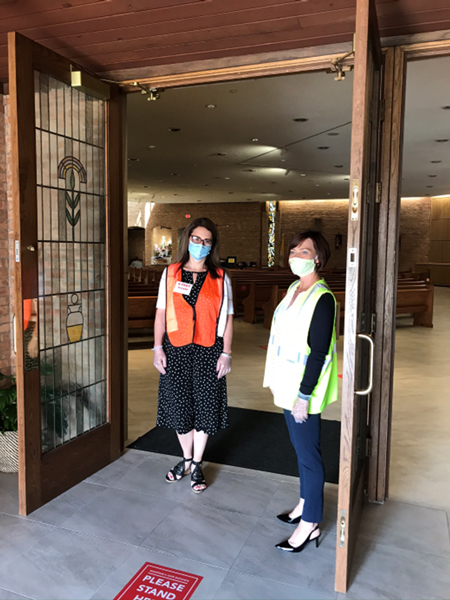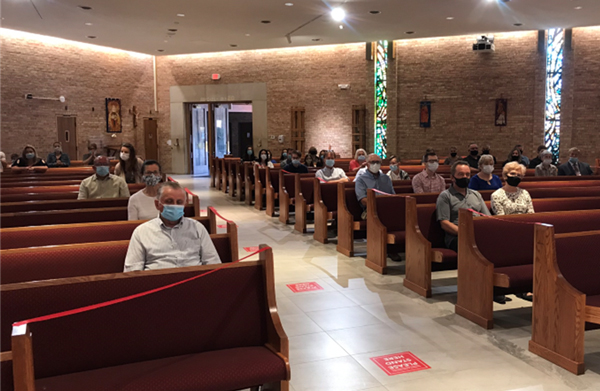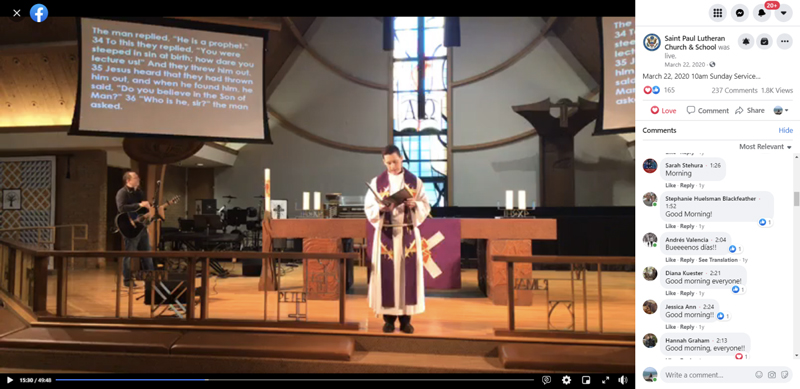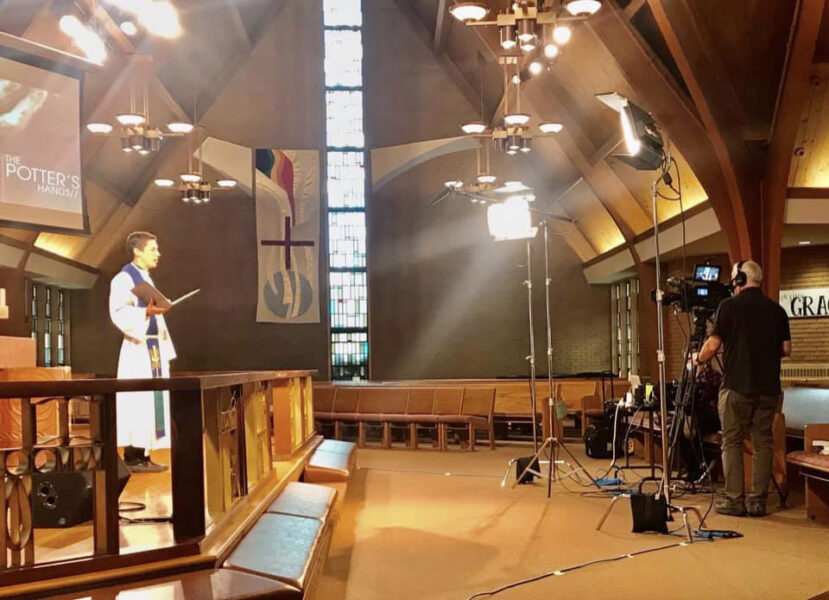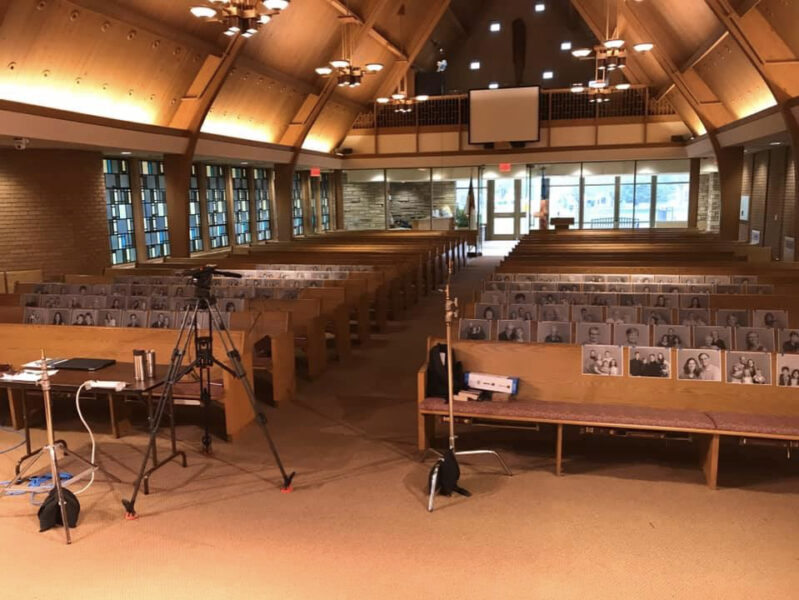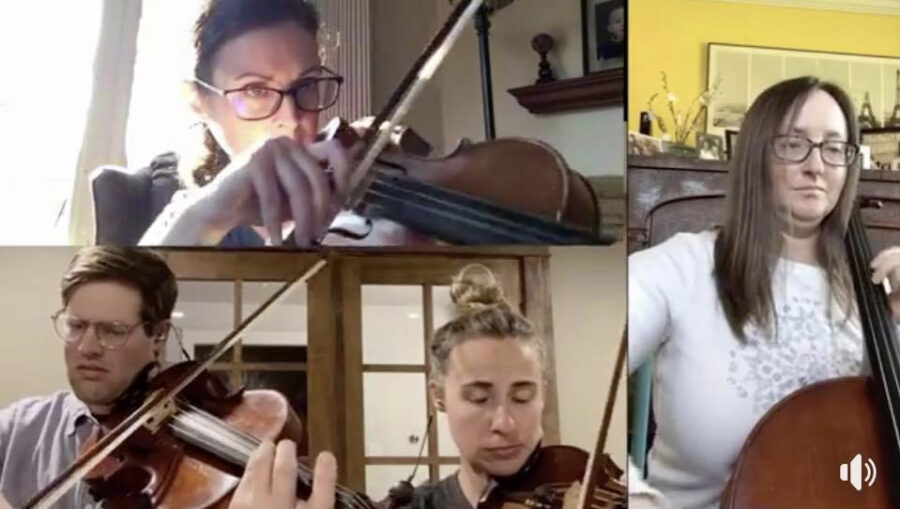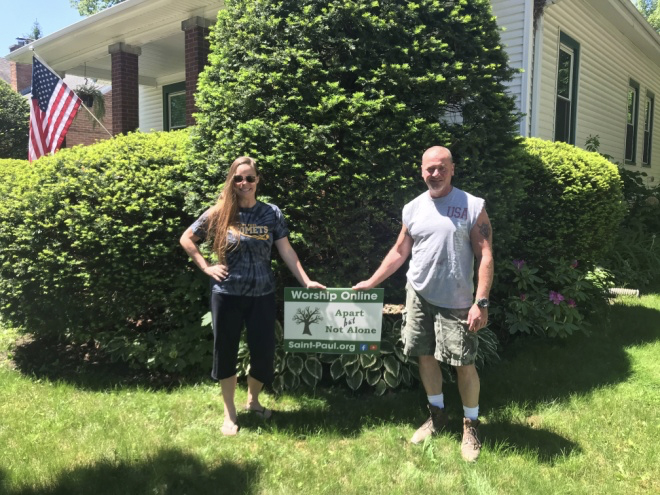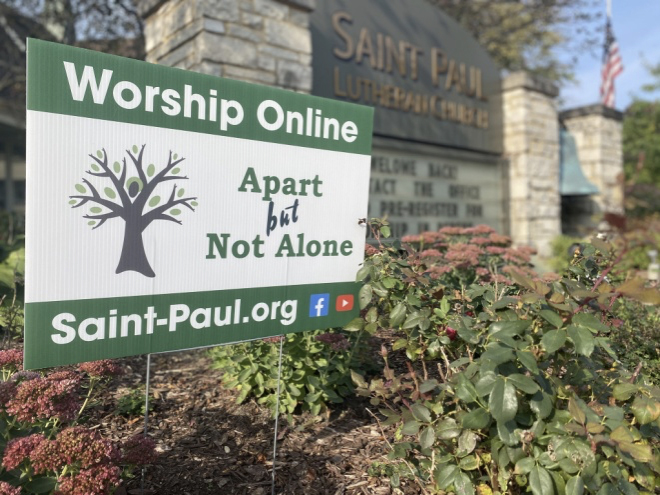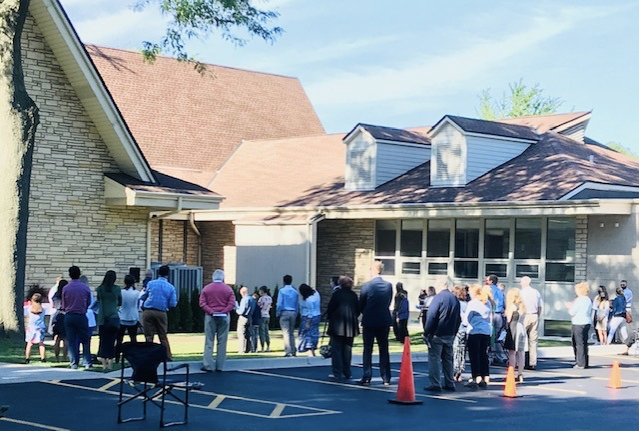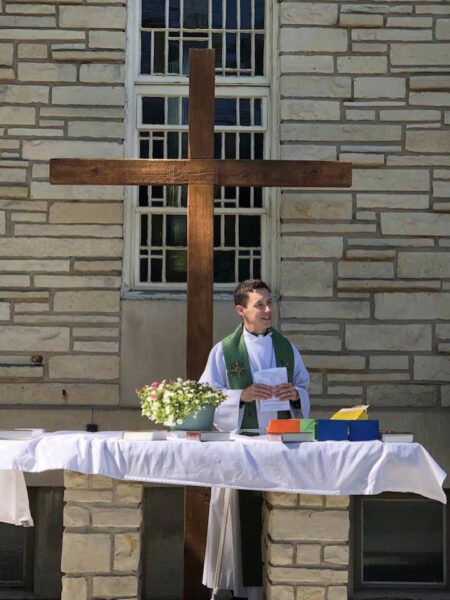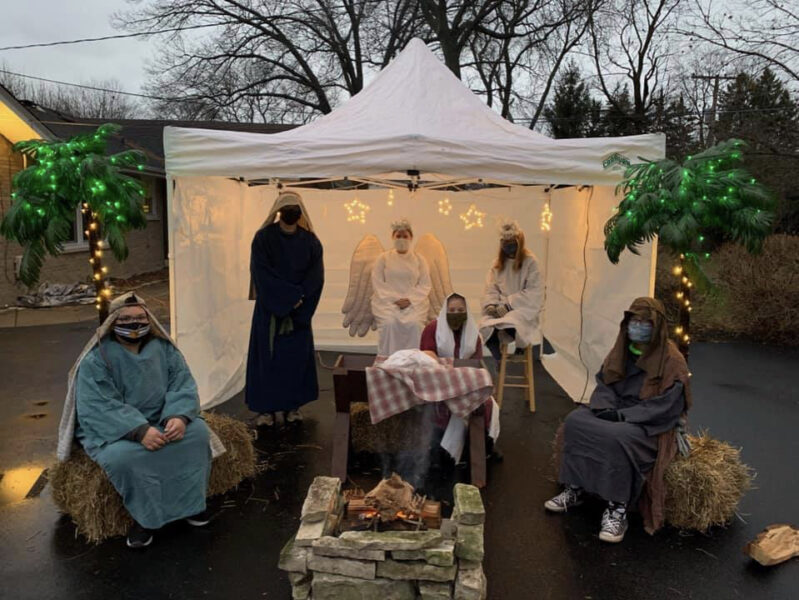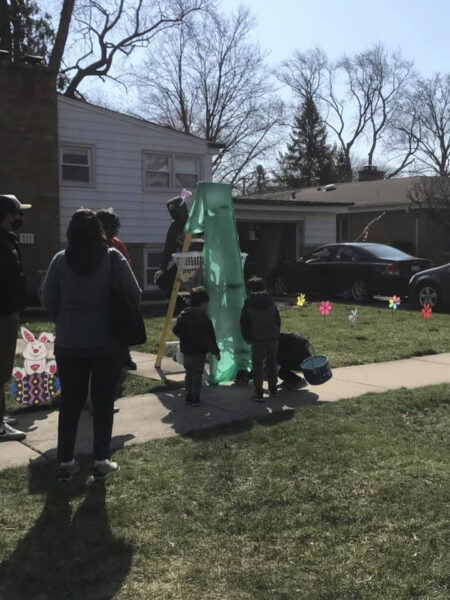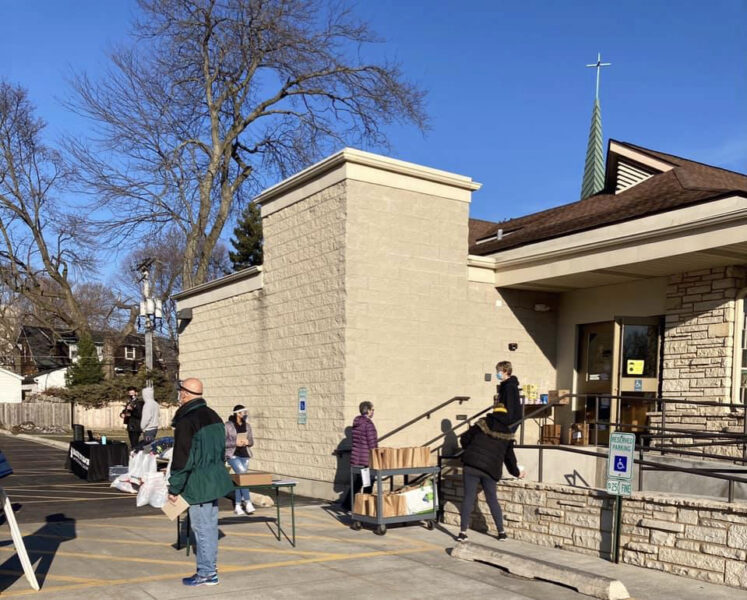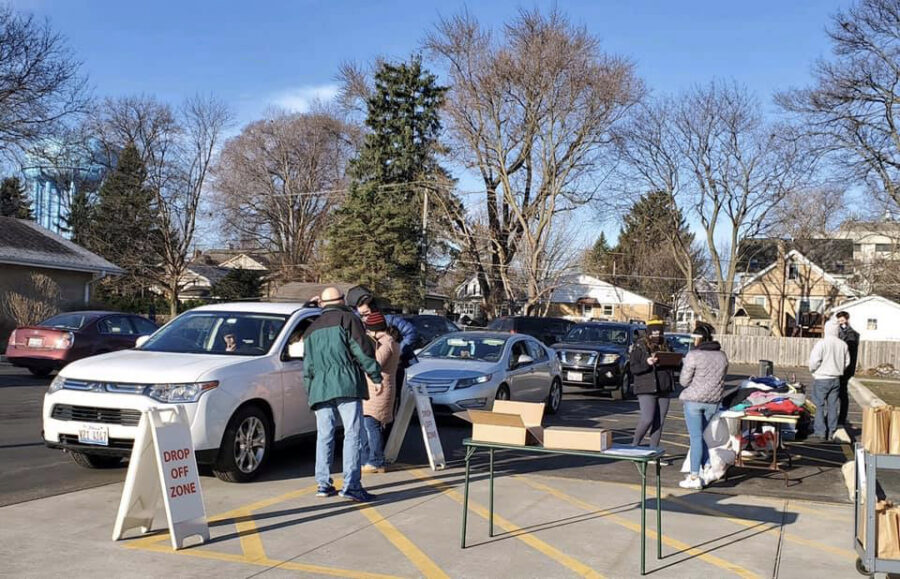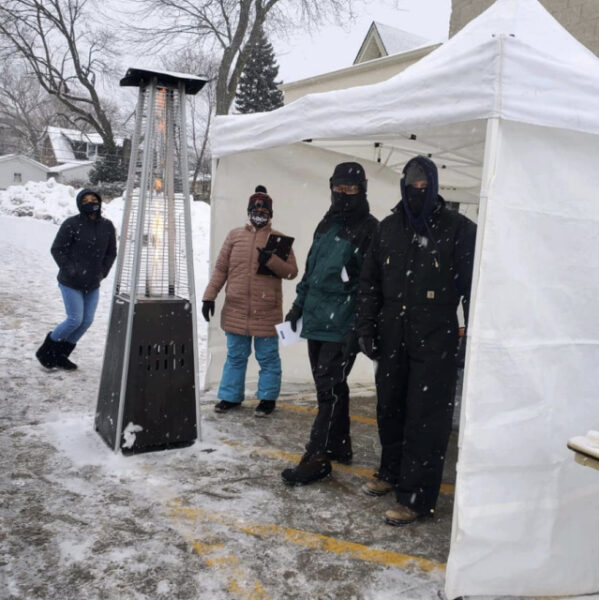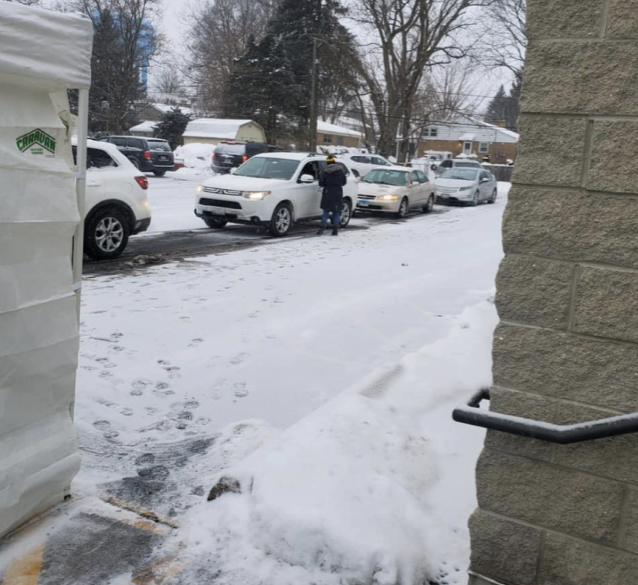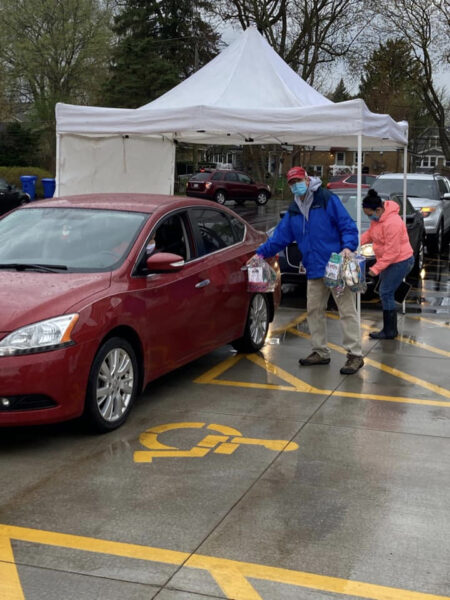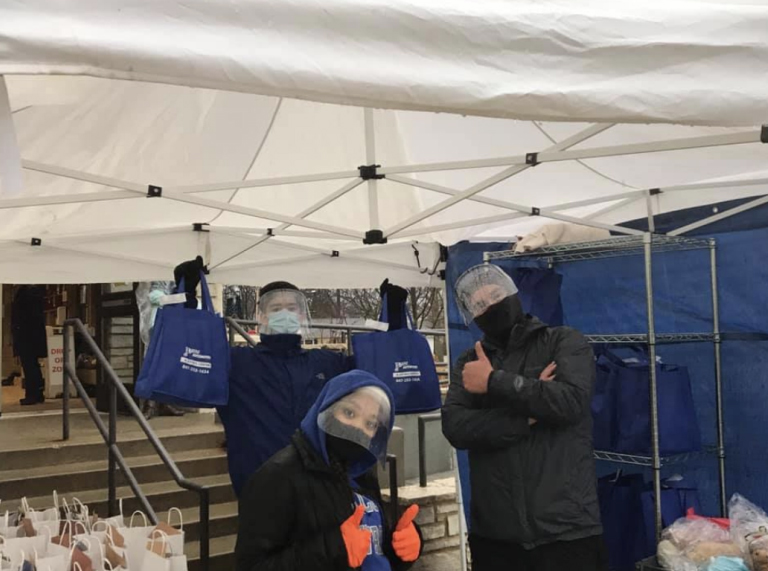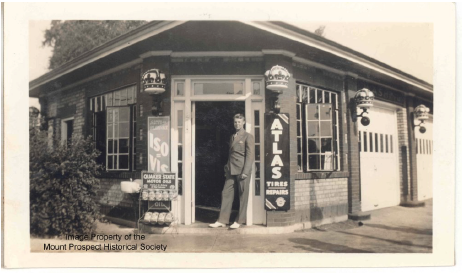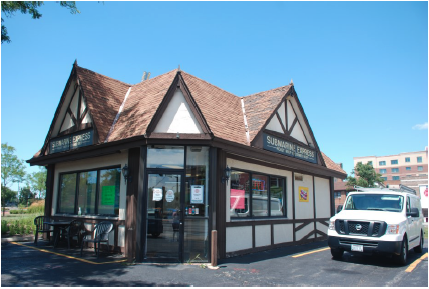
How to Participate: Take a photo with your team in at least 7 of the locations listed below. Send your photos (individually or make a collage) to the Mount Prospect Historical Society at info@mtphistory.org with the name and address of participants. Once we receive your photos, we’ll send you a “Making History in Mount Prospect” bracelet while supplies last. Have fun! Download a printable pdf here.
Village Hall
Though people had lived in the area of Mount Prospect for centuries, it was not incorporated as a village until 1917 when the population officially reached 300 people. The first Village Hall, or municipal building, was constructed in 1923 on Northwest Highway, near the water tower. The Village Hall has been on Emerson Street since the mid-1970s, but this current building opened in 2004.
☐ Take a photo inside or outside 50 S. Emerson Street
Central School
Central School, Mount Prospect’s first public school, was originally built in 1896 on the corner of Main Street and Central Road. Hundreds of Mount Prospect children attended school here, but also many community organizations, churches, and the town itself were founded within its walls. The Mount Prospect Historical Society fundraised for over 15 years to bring this historic building to our museum campus in 2008 and to fully restore it in 2017.
☐ Take a photo outside 103 S. Maple Street
Mount Prospect Public Library
The Mount Prospect Public Library was established on January 6, 1930, thanks to the fundraising efforts of the Mount Prospect Women’s Club. In the beginning the library consisted of one cart containing about 300 books in the cloakroom of Central School. The library has grown immensely since then, and the Main Branch has moved several times before settling in its current location at 10 S. Emerson Street. The South Branch of the library opened in 2009 in the Community Connections Center.
☐ Take a photo inside or outside either branch location: 10 S. Emerson Street OR 1711 W. Algonquin Road
Historic Tudor Row
Tudor-style architecture, known for its high-peaked roofs and partially exposed wood frames, was popular during the 1920s when this subdivision was developed by the H. Roy. Berry Company. The Tudor-style homes on the 300 block of S. Wa Pella Avenue were the first homes built in the subdivision, and they represent the most concentrated collection of this style of architecture in Mount Prospect.
☐ Take a photo at the sign located on the corner of S. Wa Pella Avenue and W. Lincoln Street
Mount Prospect Golf Course
In 1926, real estate developer Axel Lonnquist opened the Northwest Hills Country Club, later known as the Mount Prospect Country Club and now called the Mount Prospect Golf Club. By 1929 there was an 18-hole golf course, a dazzling clubhouse, and even a children’s playhouse! The course has since been redesigned and the original clubhouse and playhouse have been demolished. After a series of different owners, the Mount Prospect Park District purchased it in 1961.
☐ Take a photo with the sign at 600 S. See Gwun Avenue
Weller Creek
Weller Creek lent its name to the Weller Creek Drainage District, formed in 1915. Their goal was to minimize flooding in the area, and in 1925 they constructed Mount Prospect’s sewer system. The Weller Creek Drainage District served Mount Prospect until after 1949, which was when the town became part of the Chicago Sanitary District.
☐ Take a photo at Weller Creek Park, located at 501 W. Council Trail
Randhurst Village
Randhurst Shopping Center opened on August 16, 1962. At the time it was the Chicago area’s first enclosed regional mall and the largest air-conditioned space in the United States. Randhurst was sometimes called the “pinwheel on the prairie” because the mall was originally shaped like a triangle. The indoor structure closed in 2008 and was replaced in 2011 with the present-day, outdoor Randhurst Village. The former Carson Pirie Scott building (soon to be Homegoods) is the only part of the original mall still standing.
☐ Take a photo anywhere in Randhurst Village. One of the Randhurst Village signs is on the T.J.Maxx building at 1054 Center Drive.
Lions Park
The Mount Prospect Lions Club purchased this land in 1947 and transformed it into a park. They named it Lions Memorial Park to honor those who died while serving in World War II.
☐ Take a photo anywhere at Lions Park. The Lions Recreation Center is located at 411 S. Maple Street.
Rob Roy Golf Course
The Rob Roy Golf Course opened in 1925 as a private golf club, but it became a daily fee course during the 1930s due to the hardships of the Great Depression. The McDonald family owned and operated this golf course for decades until River Trails Park District purchased it in 1989.
☐ Take a photo at 505 E. Camp McDonald Road, Prospect Heights.
Memory Lane
When this area was mapped out during the 1920s, Memory Lane was originally labeled Hill Street. However, it was renamed Memory Lane by the late 1940s.
☐ As you walk down Memory Lane, take a photo with one of the street signs. This street stretches from N. Elm Street, near Gregory Park, to Dale Avenue, near Prospect High School.
St. John Lutheran Church
A group of German immigrants founded St. John Lutheran Church in 1848, forming the first church in the area that would become Mount Prospect. Many of these founding community members and their descendants later helped officially incorporate the Village of Mount Prospect in 1917. During the mid-1970s and into the early 2000s, St. John’s 1901 school building became the first permanent home of the Mount Prospect Historical Society.
☐ Take a photo outside the church, school building, or cemetery, located at 1100 Linneman Road.
Bell at River Trails Middle School
This bell once rang for students attending the second Feehanville School. The first Feehanville School was a one-room schoolhouse along River Road and opened in 1895. The school eventually moved to 1400 E. Kensington Road and a brick two-room school building was constructed in 1924. Feehanville School closed in 1982, but the bell was rededicated in 1995 to commemorate the 100th anniversary of the founding of River Trails School District.
☐ Take a photo with this bell in front of River Trails Middle School at 1000 N. Wolf Road.
Forest River Civic Association
Forest River is an unincorporated subdivision in Mount Prospect formed from farmland subdivided in the 1930s. It was nicknamed Mudville because it was one of the last subdivisions in the area to get paved roads. One of the most famous residents was Roger Touhy, a mobster during the 1920s and 1930s. His home along River Road reportedly had escape tunnels that led into the forest preserve, just in case he needed a quick exit. Despite his shady activities, neighbors remembered him as a generous man always willing to help families in need.
☐ Take a photo outside the Civic Association building or with the sign at 207 Lee Street.
Arlington Beverage Company
Pop Shop/The Art Studio
at Melas Park
This beverage company was founded in Arlington Heights in 1872, but when zoning laws changed in 1964 the company moved to the Pop Shop in Mount Prospect. People all over the northwest suburbs enjoyed their many delicious flavors of pop until the company closed in 1991. Shortly after closing, the building was transformed into The Art Studio at Melas Park.
☐ Take a photo outside 1326 W. Central Rd, adjacent to Melas Park
